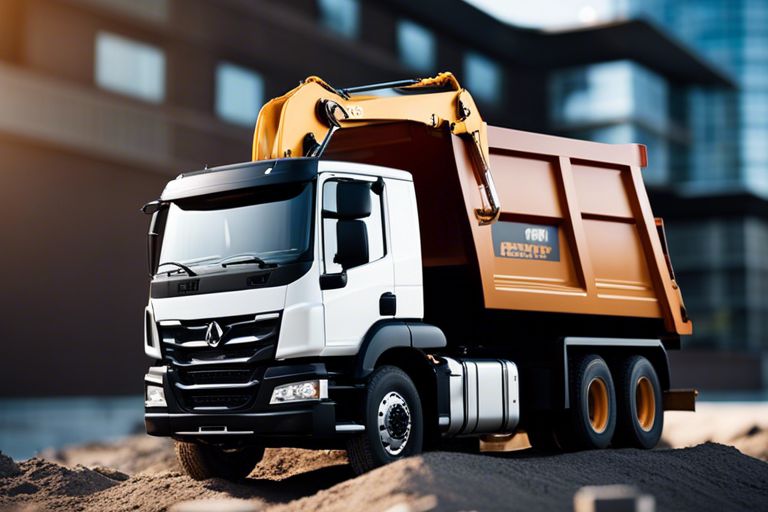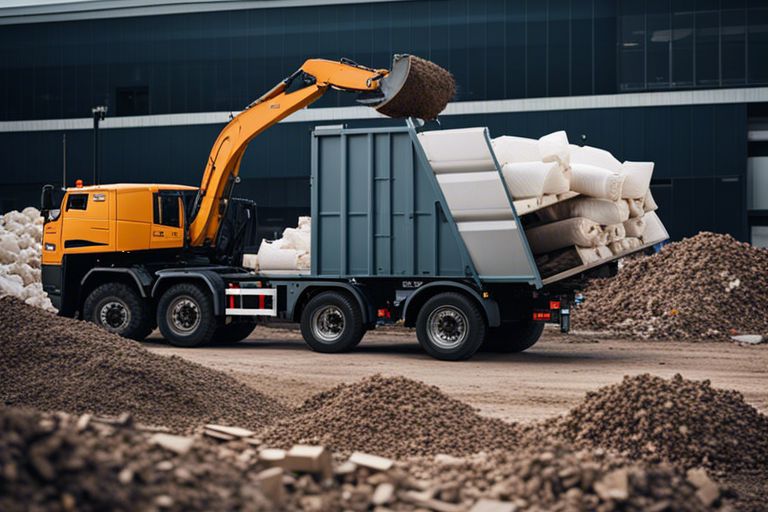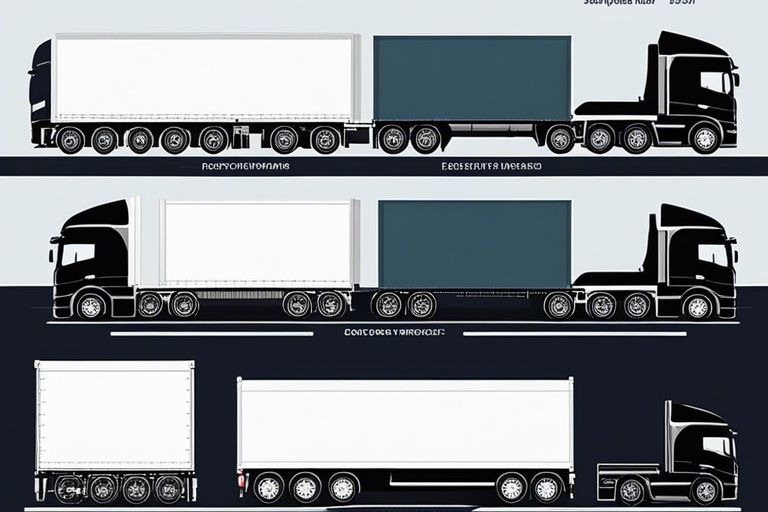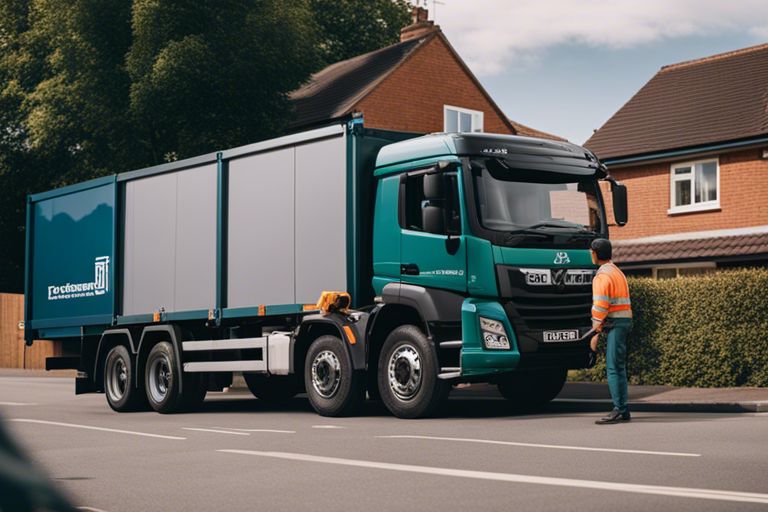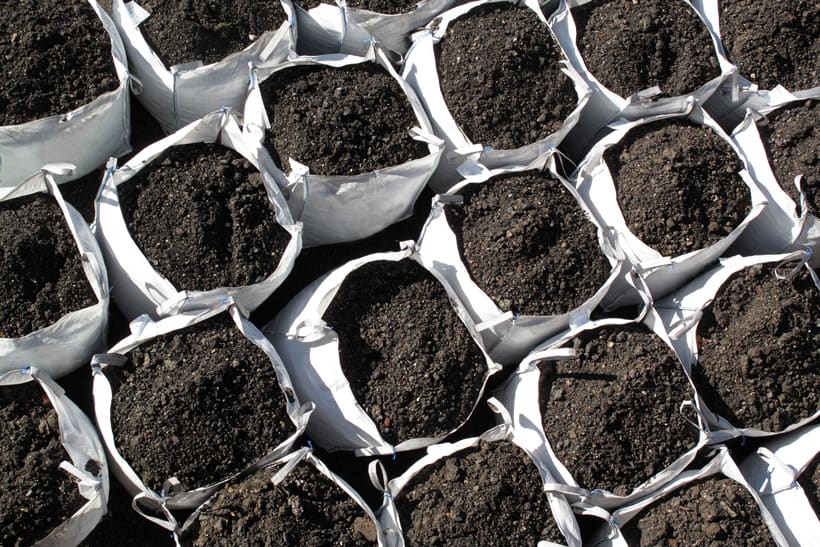In the realm of waste management, the landscape is constantly evolving, and it is crucial to stay ahead of the curve. As we look towards the future in the United Kingdom, innovative trends are emerging that will shape the way we approach waste management. From the threat of increasing landfill capacity to the opportunities presented by advancements in recycling technology, there are significant developments that will impact the way we manage waste in the UK. In this blog post, we will delve into the most important trends to watch in the future of waste management in the UK, and how they will influence our approach to sustainability and environmental conservation.
Key Takeaways:
- Circular Economy: The UK is moving towards a circular economy approach, where waste is seen as a resource to be reused, recycled and repurposed, rather than being disposed of in landfills.
- Technological Innovations: Advanced waste management technologies such as smart bins, waste-to-energy plants and digital monitoring systems are expected to play a major role in improving efficiency and sustainability in the industry.
- Policies and Regulations: The government’s commitment to reducing waste and promoting sustainable practices is driving the development of new policies and regulations, shaping the future of waste management in the UK.
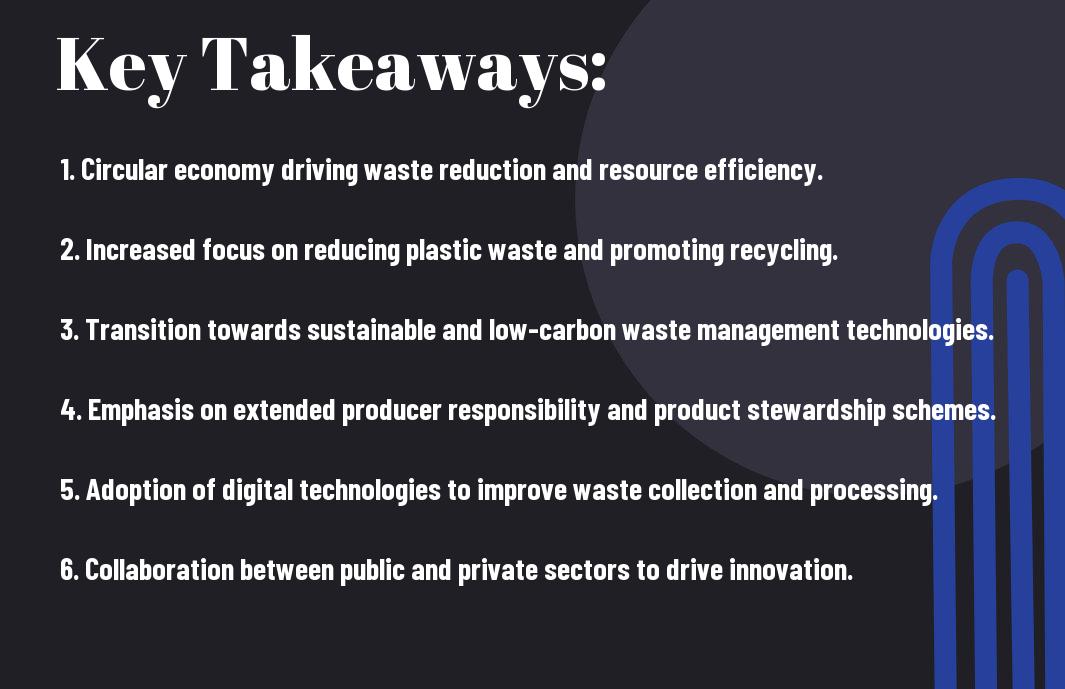
Regulatory Changes and Policy Developments
Upcoming Legislation Impacting Waste Management
The UK government is set to introduce new legislation that will have a significant impact on waste management practices. This includes stricter regulations on single-use plastics, increased recycling targets, and measures to reduce food waste. These changes are aimed at driving the country towards a more sustainable and circular economy, with a focus on reducing the environmental impact of waste.
Furthermore, the government is also looking to introduce a deposit return scheme for drinks containers, as well as potential measures to tackle the issue of electronic waste. These upcoming regulations will require businesses and individuals to rethink their approach to waste management and adopt more sustainable practices.
The UK’s Waste Management Goals for 2030
The UK has set ambitious waste management goals for 2030, including achieving a recycling rate of 65% and reducing the amount of waste sent to landfill to no more than 10%. These targets are in line with the country’s commitment to tackling climate change and transitioning to a more circular economy. The government aims to achieve these goals by implementing a mix of policy measures, investment in infrastructure, and collaboration with industry stakeholders.
It is crucial for the UK to meet these waste management goals in order to mitigate the environmental and social impacts of waste, as well as to comply with international agreements on sustainable development and climate action. Meeting these targets will require a concerted effort from across the public and private sectors, as well as changes in consumer behaviour towards more sustainable practices.
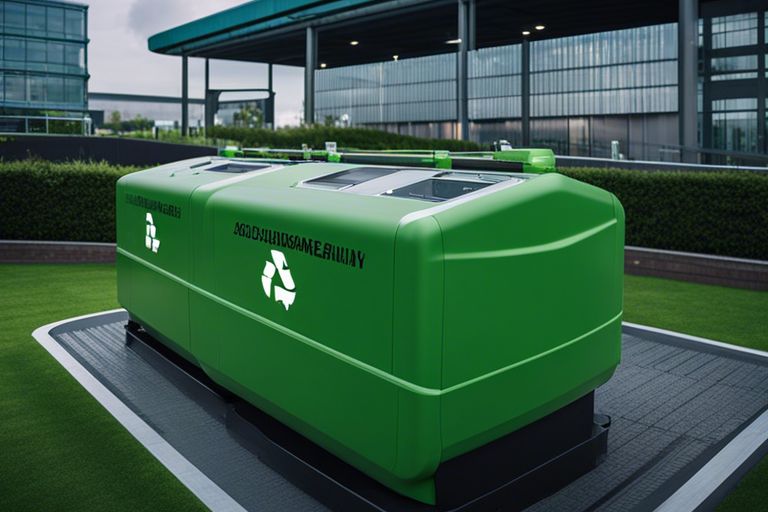
Technological Innovations in Waste Management
As we look towards the future of waste management in the UK, it’s crucial to consider the ongoing technological advancements that are shaping the industry. These innovations are not only revolutionising the way waste is managed but also creating new opportunities for sustainability and environmental conservation. To stay ahead of the curve, it’s essential to stay informed about the latest trends and developments in waste management technology. According to a recent article on Circular Online, “The 6 top trends from 2022 driving change in waste management” are driving significant change in the industry.
Advancements in Waste Sorting and Recycling Technology
One of the most significant trends in waste management technology is the advancements in waste sorting and recycling. Innovations in this area are allowing for more efficient and effective sorting of different types of waste, leading to higher recycling rates and reduced contamination. This has a positive impact on the environment by reducing the amount of waste sent to landfills and improving the overall sustainability of waste management processes. With the integration of advanced sensors and robotic technologies, waste sorting and recycling facilities are becoming more efficient and cost-effective.
The Role of Artificial Intelligence and Big Data
Another key trend to watch is the increasing role of artificial intelligence and big data in waste management. By leveraging AI and big data analytics, waste management companies are gaining valuable insights into waste generation patterns, collection routes, and processing efficiencies. This allows for smarter decision-making and optimisation of waste management processes, leading to reduced environmental impact and improved resource recovery. The integration of AI and big data is paving the way for a more sustainable and effective waste management approach in the UK.
Artificial intelligence and big data are playing a crucial role in shaping the future of waste management, and it’s essential for industry professionals to stay informed about these developments. By understanding the potential of AI and big data in waste management, we can harness their power to drive positive change and create a more sustainable future for waste management in the UK.
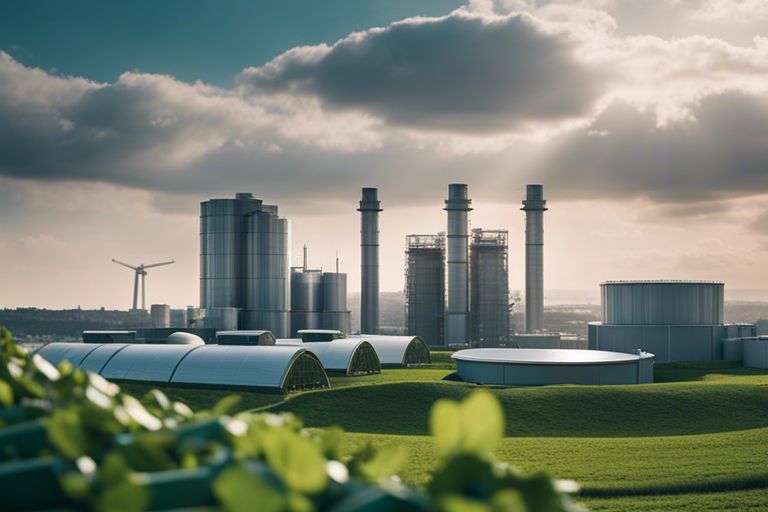
Sustainable Practices and Circular Economy Integration
As we look toward the future of waste management in the UK, it is crucial to focus on sustainable practices and the integration of circular economy principles. Embracing these concepts will not only help us reduce the environmental impact of waste but also create economic opportunities and drive innovation in the industry. To learn more about the innovations and technologies shaping the future of waste management in the UK, check out our blog post The Future of Waste Management in the UK: Innovations, Technologies, and Trends to Watch For.
Promoting Sustainable Consumption and Production
In order to achieve a sustainable future for waste management, it is essential to promote sustainable consumption and production practices. This involves encouraging responsible consumption choices, reducing waste generation, and implementing efficient production processes. By embracing sustainable practices, we can minimise the environmental impact of waste and create a more resilient and resource-efficient economy.
Success Stories of Circular Economy in Waste Management
The integration of circular economy principles in waste management has led to several success stories across the UK. From innovative recycling initiatives to the development of sustainable product designs, these success stories demonstrate the potential for circular economy integration to transform the way we manage waste. By closing the loop and maximising the value of waste materials, these initiatives are contributing to a more sustainable and circular approach to waste management.
For more information on the success stories of circular economy integration in waste management and how they are driving positive change in the industry, visit our blog post on ‘The Future of Waste Management in the UK: Innovations, Technologies, and Trends to Watch For’.
Challenges and Potential Solutions
Waste management in the UK faces a multitude of challenges, from the proliferation of plastic waste to the staggering levels of food wastage. However, there are potential solutions that could mitigate these pressing issues and pave the way for a more sustainable future.
Addressing the Issue of Plastic Waste
The exponential growth of plastic waste poses a significant threat to the environment and public health. To combat this, it is imperative for the UK to implement stringent regulations on single-use plastics, promote the use of biodegradable alternatives, and invest in advanced recycling technologies. Additionally, public awareness campaigns and educational initiatives are crucial in shifting consumer behaviours towards more sustainable choices. Failure to address this issue could result in irreparable damage to ecosystems and human health.
Strategies for Reducing Food Waste at the Source
Food waste at the source is a complex problem that requires a multifaceted approach. Encouraging sustainable purchasing habits, standardising portion sizes, and educating consumers on proper food storage and preservation techniques are effective strategies for minimising food wastage. Furthermore, collaborations between food retailers and charitable organisations can facilitate the donation of surplus food to those in need. Implementing these strategies is essential in reducing the environmental impact of food waste and alleviating food insecurity in the UK.
Effective implementation of these strategies requires coordinated efforts from the government, industry, and the public. Through collective action, the UK can make significant strides towards a more sustainable and efficient waste management system.
The Future of Waste Management – Trends to Watch in the UK
In conclusion, the future of waste management in the UK is poised to see significant advancements in technology, regulations, and public awareness. With a greater emphasis on sustainability and environmental responsibility, trends such as the implementation of circular economy principles, the expansion of recycling infrastructure, and the development of innovative waste-to-energy solutions are likely to shape the industry. Additionally, increased government support and investment in green initiatives will drive the transition towards a more circular and resource-efficient waste management system. As consumers and businesses become more mindful of their waste production, there is an opportunity for collaboration and innovation to address the challenges and opportunities in waste management. It is vital for all stakeholders to stay informed and proactive in adopting these trends to create a more sustainable and efficient waste management ecosystem in the UK.
FAQ
Q: What are the current waste management trends in the UK?
A: The current waste management trends in the UK include an increased focus on recycling, reducing single-use plastics, and implementing more sustainable waste treatment methods.
Q: How is the UK working towards a more circular economy in waste management?
A: The UK is implementing policies and strategies to promote the circular economy, including extended producer responsibility schemes, incentivising the use of recycled materials, and investing in innovative recycling technologies.
Q: What are the challenges faced by the UK in waste management?
A: Some of the challenges faced by the UK in waste management include managing the growing amount of waste, reducing carbon emissions from waste treatment, and finding sustainable solutions for hazardous waste disposal.
Q: How is technology impacting waste management in the UK?
A: Technology is revolutionising waste management in the UK with the use of smart waste bins, advanced sorting and recycling equipment, and the development of waste-to-energy technologies.
Q: What can individuals and businesses do to contribute to better waste management in the UK?
A: Individuals and businesses can contribute to better waste management in the UK by reducing waste generation, segregating waste for recycling, supporting sustainable products and packaging, and investing in environmentally-friendly waste management practices.

